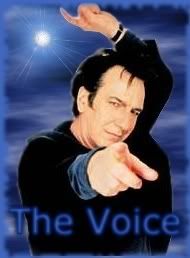Post by DaBao on Dec 31, 2006 5:42:58 GMT -5
I just found some articles on Harry Potter fandom, and thought I'd share.
I've looked up a lot of articles, and almost none of them have anything on AD/MM.
(If this is posted under the wrong topic please tell me so I can move it)
Harry Potter fandom
The Harry Potter series is infamous for generating what was probably one of the most intense shipping debates to ever occur in the collective history of fandom. Spanning nearly seven years, from early 1999 to mid-2005, the "ship debate" as it was known saw supporters of the prospective relationship between Harry and his close female friend Hermione Granger constantly at odds with supporters of Hermione winding up instead with Ron Weasley, close friend of both – to eventually draw attention from the mainstream media and even J.K. Rowling, series author, herself.
The debate was mostly held within the Harry Potter for Grownups discussion group, with the focus later shifting to a thread inside the FictionAlley forums called "The DeathMarch" (later renamed to simply the 'Debate Thread' to do away with the extreme connotations of the former). The factionalism that consequently emerged, however, was much more far-reaching within the fandom. Many prominent web sites, such as The Sugar Quill and Fiction Alley, had shipping agendas which had contributed much to their creation and in a way even defined them; Being a famous or effective ship debater could gain a fan a status very similar to that of an accomplished author of fan fiction.
The deciding point that signaled the debate's transition from just another discussion into a miniature online war was the release of Harry Potter and the Goblet of Fire, which developed the issues of romance in the series significantly and set several trends for the debate's continuation. Harry/Hermione supporters, their favored plot threads set back by Ron's apparent developing feelings for Hermione, turned to more complex venues of argument using symbolism, subtext and metonymy to support their case, arguing that what other fans perceived as clues were in fact a cleverly-constructed smoke-screen (or red herrings). Quotes from Rowling which seemed to contradict the possibility were usually countered by claiming them to be deliberate obfuscations designed to lure the astute observation off-course (though such claims were far from undisputed, given that these allegedly vague quotes included such phrases as "[Harry and Hermione] are very platonic friends").
Another front fans of the Harry and Hermione relationship had to deal with was the alternative of Harry ending up with Ginny Weasley, Ron's younger sister, whose obvious crush on him served as a comical plotline starting in Harry Potter and the Chamber of Secrets. Arguably this debate was conducted on more even ground, as Harry/Ginny largely lacked the concrete build-up Ron/Hermione used to challenge Harry/Hermione with; instead arguments promoting this possibility were of similar types to Harry/Hermione arguments, claiming metaphor, use of archetypes, and genre conventions. Much of the case for Ginny as Harry's eventual significant other was by elimination—arguing that Rowling's quotes had eliminated Hermione and that other alternatives, such as Luna Lovegood, were unsuitable for various reasons.
Many fans had hopes of the shipping question being resolved with the release of Harry Potter and the Order of the Phoenix; for a time, referring to "book five" in the debate was practically synonymous for alluding to that time when J.K. Rowling would unambiguously put the conflict to rest. However, the book failed to resolve the shipping question, and what little evidence was there could have been (and was) interpreted either way; One example of this is the apparent end of Ginny's crush - it was hardly unreasonable of Harry/Hermione supporters to view this as a logical step towards their ship, even if in retrospect they were mistaken. Similarly, Rowling's statements regarding the shipping question in interviews, online chat sessions and such slowly became more vague as well, perhaps because she became aware of online shipping around this time and didn't want to spoil something her fans were so excited about.
The much-anticipated resolution did not come until two years later, with the release of Harry Potter and the Half-Blood Prince. The apparent subsiding of Ginny's feelings in the previous book was used to create an ironic twist: Harry suddenly develops a crush on her, convinced that he has missed his opportunity with her. In the end Ginny turns out to never have given up on Harry after all, but merely taken Hermione's advice to try and date other boys to boost her self-confidence and be more like herself around him. Though their romantic relationship beocmes one of the few sources of comfort in Harry's difficult life, he makes a bold decision to break it apart for fear that Voldemort would learn of it and target Ginny. Rowling later commented that she had planned Ginny as Harry's "ideal girl" from the very beginning.
As might be expected, Harry/Hermione shippers—who had made strong emotional investments in their chosen pairing—weren't pleased with this outcome. Some very dejected fans of the pairing declared Rowling a cheap cop-out show and her implementation of the Harry/Ginny romance two-dimensional and lacking; Others modified their red-herring theories, noting that neither the Harry/Ginny nor the Ron/Hermione relationship was technically extant at the end of the book and arguing that events in the seventh book will not change this situation. Still others conceded that their ship was unlikely to come to fruition in canon but believed that it would enhance the books if it did.
The same could be said for another ship, and a much more controversial one. There are shippers who support a Harry Potter/Draco Malfoy ship. While this one may seem as far-fetched as the Hermione/Harry ship, the two shiping groups couldn't be more different. While Harry/Hermione fans look to subtext and metonymy, Harry/Draco fans look to the similarity between Harry and Draco's relationship and that of Elizabeth Bennett and William Darcy in Pride and Prejudice, by Jane Austen. They point to the similarities between Harry and Elizabeth, both fun loving, with lots of friends and family, with a decent amount of money but not overly rich, and Darcy and Draco. Aside from the similarities in their names, they are both rich, seemingly spoiled, and at odds with Elizabeth and Harry from the start. But, in the end, they fall in love, finally understanding each other. Since Rowling has not commented on this relationship, Harry/Draco supporters have no reason to believe that their shipping isn't as likely as the next. But many Harry/Draco supporters are at great odds with Hermione/Harry supporters. Both claim that the other is grasping at straws, that H/D supporters aren't interpreting Harry and Draco's sexuality correctly, and that Hr/H shippers are 'delusional', and just can't accept the truth, even when the author proclaims it to be so.
Whatever the shipping arguments may be, in the end, when the seventh book comes out, all will be up for grabs.
Though this final resolution caused plenty of fireworks in and of itself, the effect was dramatically amplified by an interview with J.K. Rowling conducted by fansite webmasters Emerson Spartz (MuggleNet) and Melissa Anelli (The Leaky Cauldron) shortly after the book's release. During the interview Spartz commented that Harry/Hermione shippers were "delusional", to which Rowling chuckled, though making it clear that she did not share the sentiment and that the Harry/Hermione fans were "still valued members of her readership". This incident resulted in an uproar among Harry/Hermione shippers, some of whom announced that they would return their copies of Harry Potter and the Half-Blood Prince and boycott future Harry Potter books, leveling criticism at Spartz, Anelli, and Rowling herself. Many complained that both sites had a Ron/Hermione bias and criticized Rowling for not including a representative of their community. The uproar was loud enough to merit an article in the San Francisco Chronicle.
Rowling's attitude towards the shipping phenomenon has varied between amused and bewildered, as she revealed in that interview. She explained:
“ Well, you see, I'm a relative newcomer to the world of shipping, because for a long time, I didn't go on the net and look up Harry Potter. A long time. Occasionally I had to, because there were weird news stories or something that I would have to go and check, because I was supposed to have said something I hadn’t said. I had never gone and looked at fan sites, and then one day I did and oh - my - god. Five hours later or something, I get up from the computer shaking slightly [all laugh]. ‘What is going on?’ And it was during that first mammoth session that I met the shippers, and it was a most extraordinary thing. I had no idea there was this huge underworld seething beneath me. ”
In a later posting on MuggleNet, Spartz explained:
“ My comments weren't directed at the shippers who acknowledged that Harry/Hermione was a long shot but loved the idea of them together. It was directed at the "militant" shippers who insisted that there was overwhelming canon proof and that everyone else was too blind to see it. You were delusional; you saw what you wanted to see and you have no one to blame for that but yourselves. ”
Rowling has continued to make references, though less humorous and more to the severity of the shipper conflicts. In one instance she has joked about trying to think of ways of proving to Emerson, when inviting him for the aforementioned interview, that it was really her and not "some angry Harry/Hermione shipper trying to lure him down a dark alleyway"; In another, she has described her impression of the Harry Potter fandom's shipping debates as "cyber gang warfare".
I've looked up a lot of articles, and almost none of them have anything on AD/MM.
(If this is posted under the wrong topic please tell me so I can move it)
Harry Potter fandom
The Harry Potter series is infamous for generating what was probably one of the most intense shipping debates to ever occur in the collective history of fandom. Spanning nearly seven years, from early 1999 to mid-2005, the "ship debate" as it was known saw supporters of the prospective relationship between Harry and his close female friend Hermione Granger constantly at odds with supporters of Hermione winding up instead with Ron Weasley, close friend of both – to eventually draw attention from the mainstream media and even J.K. Rowling, series author, herself.
The debate was mostly held within the Harry Potter for Grownups discussion group, with the focus later shifting to a thread inside the FictionAlley forums called "The DeathMarch" (later renamed to simply the 'Debate Thread' to do away with the extreme connotations of the former). The factionalism that consequently emerged, however, was much more far-reaching within the fandom. Many prominent web sites, such as The Sugar Quill and Fiction Alley, had shipping agendas which had contributed much to their creation and in a way even defined them; Being a famous or effective ship debater could gain a fan a status very similar to that of an accomplished author of fan fiction.
The deciding point that signaled the debate's transition from just another discussion into a miniature online war was the release of Harry Potter and the Goblet of Fire, which developed the issues of romance in the series significantly and set several trends for the debate's continuation. Harry/Hermione supporters, their favored plot threads set back by Ron's apparent developing feelings for Hermione, turned to more complex venues of argument using symbolism, subtext and metonymy to support their case, arguing that what other fans perceived as clues were in fact a cleverly-constructed smoke-screen (or red herrings). Quotes from Rowling which seemed to contradict the possibility were usually countered by claiming them to be deliberate obfuscations designed to lure the astute observation off-course (though such claims were far from undisputed, given that these allegedly vague quotes included such phrases as "[Harry and Hermione] are very platonic friends").
Another front fans of the Harry and Hermione relationship had to deal with was the alternative of Harry ending up with Ginny Weasley, Ron's younger sister, whose obvious crush on him served as a comical plotline starting in Harry Potter and the Chamber of Secrets. Arguably this debate was conducted on more even ground, as Harry/Ginny largely lacked the concrete build-up Ron/Hermione used to challenge Harry/Hermione with; instead arguments promoting this possibility were of similar types to Harry/Hermione arguments, claiming metaphor, use of archetypes, and genre conventions. Much of the case for Ginny as Harry's eventual significant other was by elimination—arguing that Rowling's quotes had eliminated Hermione and that other alternatives, such as Luna Lovegood, were unsuitable for various reasons.
Many fans had hopes of the shipping question being resolved with the release of Harry Potter and the Order of the Phoenix; for a time, referring to "book five" in the debate was practically synonymous for alluding to that time when J.K. Rowling would unambiguously put the conflict to rest. However, the book failed to resolve the shipping question, and what little evidence was there could have been (and was) interpreted either way; One example of this is the apparent end of Ginny's crush - it was hardly unreasonable of Harry/Hermione supporters to view this as a logical step towards their ship, even if in retrospect they were mistaken. Similarly, Rowling's statements regarding the shipping question in interviews, online chat sessions and such slowly became more vague as well, perhaps because she became aware of online shipping around this time and didn't want to spoil something her fans were so excited about.
The much-anticipated resolution did not come until two years later, with the release of Harry Potter and the Half-Blood Prince. The apparent subsiding of Ginny's feelings in the previous book was used to create an ironic twist: Harry suddenly develops a crush on her, convinced that he has missed his opportunity with her. In the end Ginny turns out to never have given up on Harry after all, but merely taken Hermione's advice to try and date other boys to boost her self-confidence and be more like herself around him. Though their romantic relationship beocmes one of the few sources of comfort in Harry's difficult life, he makes a bold decision to break it apart for fear that Voldemort would learn of it and target Ginny. Rowling later commented that she had planned Ginny as Harry's "ideal girl" from the very beginning.
As might be expected, Harry/Hermione shippers—who had made strong emotional investments in their chosen pairing—weren't pleased with this outcome. Some very dejected fans of the pairing declared Rowling a cheap cop-out show and her implementation of the Harry/Ginny romance two-dimensional and lacking; Others modified their red-herring theories, noting that neither the Harry/Ginny nor the Ron/Hermione relationship was technically extant at the end of the book and arguing that events in the seventh book will not change this situation. Still others conceded that their ship was unlikely to come to fruition in canon but believed that it would enhance the books if it did.
The same could be said for another ship, and a much more controversial one. There are shippers who support a Harry Potter/Draco Malfoy ship. While this one may seem as far-fetched as the Hermione/Harry ship, the two shiping groups couldn't be more different. While Harry/Hermione fans look to subtext and metonymy, Harry/Draco fans look to the similarity between Harry and Draco's relationship and that of Elizabeth Bennett and William Darcy in Pride and Prejudice, by Jane Austen. They point to the similarities between Harry and Elizabeth, both fun loving, with lots of friends and family, with a decent amount of money but not overly rich, and Darcy and Draco. Aside from the similarities in their names, they are both rich, seemingly spoiled, and at odds with Elizabeth and Harry from the start. But, in the end, they fall in love, finally understanding each other. Since Rowling has not commented on this relationship, Harry/Draco supporters have no reason to believe that their shipping isn't as likely as the next. But many Harry/Draco supporters are at great odds with Hermione/Harry supporters. Both claim that the other is grasping at straws, that H/D supporters aren't interpreting Harry and Draco's sexuality correctly, and that Hr/H shippers are 'delusional', and just can't accept the truth, even when the author proclaims it to be so.
Whatever the shipping arguments may be, in the end, when the seventh book comes out, all will be up for grabs.
Though this final resolution caused plenty of fireworks in and of itself, the effect was dramatically amplified by an interview with J.K. Rowling conducted by fansite webmasters Emerson Spartz (MuggleNet) and Melissa Anelli (The Leaky Cauldron) shortly after the book's release. During the interview Spartz commented that Harry/Hermione shippers were "delusional", to which Rowling chuckled, though making it clear that she did not share the sentiment and that the Harry/Hermione fans were "still valued members of her readership". This incident resulted in an uproar among Harry/Hermione shippers, some of whom announced that they would return their copies of Harry Potter and the Half-Blood Prince and boycott future Harry Potter books, leveling criticism at Spartz, Anelli, and Rowling herself. Many complained that both sites had a Ron/Hermione bias and criticized Rowling for not including a representative of their community. The uproar was loud enough to merit an article in the San Francisco Chronicle.
Rowling's attitude towards the shipping phenomenon has varied between amused and bewildered, as she revealed in that interview. She explained:
“ Well, you see, I'm a relative newcomer to the world of shipping, because for a long time, I didn't go on the net and look up Harry Potter. A long time. Occasionally I had to, because there were weird news stories or something that I would have to go and check, because I was supposed to have said something I hadn’t said. I had never gone and looked at fan sites, and then one day I did and oh - my - god. Five hours later or something, I get up from the computer shaking slightly [all laugh]. ‘What is going on?’ And it was during that first mammoth session that I met the shippers, and it was a most extraordinary thing. I had no idea there was this huge underworld seething beneath me. ”
In a later posting on MuggleNet, Spartz explained:
“ My comments weren't directed at the shippers who acknowledged that Harry/Hermione was a long shot but loved the idea of them together. It was directed at the "militant" shippers who insisted that there was overwhelming canon proof and that everyone else was too blind to see it. You were delusional; you saw what you wanted to see and you have no one to blame for that but yourselves. ”
Rowling has continued to make references, though less humorous and more to the severity of the shipper conflicts. In one instance she has joked about trying to think of ways of proving to Emerson, when inviting him for the aforementioned interview, that it was really her and not "some angry Harry/Hermione shipper trying to lure him down a dark alleyway"; In another, she has described her impression of the Harry Potter fandom's shipping debates as "cyber gang warfare".


 add my name!!
add my name!! 


 x
x



 >
>







 *hack cough* *sigh* I can dream... ):
*hack cough* *sigh* I can dream... ):
